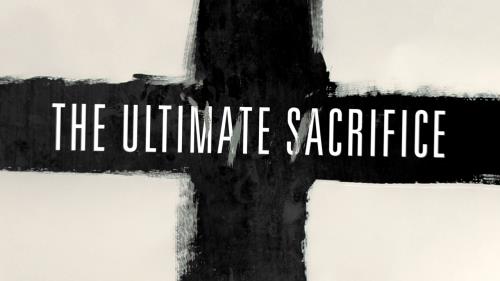-
The High Priest
Contributed by Kenneth Bailey on Nov 28, 2017 (message contributor)
Summary: Study in the High Priesthood of Christ and our response to His Priesthood.
The High Priest
Today is April Fool’s Day. I toyed with the idea of making some sort of ludicrous statement and then proclaiming “April Fool’s!” but decided against that since I don’t want to ever mislead you, even in a time of jest. But as I was debating on how I would begin the sermon, I remembered the title of a summer camp I went to as a young teenager: “Fools for Christ’s sake.” Paul makes the statement in his first letter to the Corinthians chapter 4, verse 10 to remind them of his continual suffering for Christ in the world. Paul goes where Christ leads and denies himself those things of which they have much abundance, so much so that many think of him as a fool. Who is this Christ that anyone should want to be considered a fool for His sake? What power has He over men that they would count all things as loss simply to know Him and to worship Him?
Over the last few weeks we have referred to Christ by a few of His titles, “Son of God,” “Bread of Life,” and “Lamb of God.” A very common understanding within the church of Christ is that He is prophet, priest and king. Each of these offices is embodied by different characters in the Old Testament, many of these characters carry more than just one of these offices. Ezekiel was a priest and prophet. David offered up sacrifices and prophesied. Moses, performed all three duties to varying degrees. The prophet represents the voice of God to the people. The king is the ruler of God’s people, and the priest represents the voice of the people to God. These offices carry with them much weight and importance to the culture, heritage and religion of the Hebrews. Where the men of the Old Testament symbolize various imperfect types of these functions, Christ embodies them all perfectly. Over the next few weeks we will be exploring each of these offices and Christ’s fulfillment of each. Today, we begin by looking at Christ’s place as the ultimate priest, the True High Priest, the only priest capable of performing and offering the sacrifice of the Lamb of God.
In today’s epistle, Paul states that Jesus is our high priest. He took the blood of the holy sacrifice, Himself, and offered it unto His Father as an eternal atonement for our transgressions so that we might receive everlasting life. This priestly function is ancient, first mentioned in Genesis 14:18, where Melchizedek, the priest of the Most High God met Abram with bread and wine, blessed him in the name of the Lord and worshiped God. We see then that our first understanding of the office of the priest is to offer the blessing of the Lord and to lead the people in the worship of God. Isn’t it curious how the first priest offered up bread and wine for fellowship with Abram in honor of the Living God? We continue that tradition today in our worship at the Holy Altar, where we partake of that holy Sacrament wherein we ingest the Bread and Wine and participate in the sacrifice offered by Christ. We find that this offering and Christ’s priestliness is prophesied for us in Psalm 110 verse 4 where we are told the Lord’s Anointed will be a “priest forever after the order of Melchizedek.”
Later, we meet Jethro, Moses’ father-in-law, he is said to be the priest of Midian, and assumed to be a priest of the Most High. The significance of Jethro is untold but can be found by interpreting his relationship to Moses. Most likely, Moses had very little to do with the Hebrew religion. He was the adopted son of Pharoah’s daughter -- probably only a few knew that he was not of kingly blood. He was raised by his mother who taught him about their past and told him about God, but I would assume that he was more comfortable with the Egyptian religions given that he was not a slave but royalty and required to believe in the gods of the pharoahs. Since he had no real religious education, apart from the information passed to him from his mother and sister, he would have been very handicapped to know the basics of the Law already given, but not written down by the Lord. That is where Jethro would come into play. Jethro offered shelter for the renegade from Egypt. He offered him a place to live, and eventually, he offered Moses his daughter’s hand in marriage. Moses lived with Jethro for many years and benefited from having a priest for a father-in-law. At the very least, Moses would have learned by example some of the religion which had been passed down through the generations concerning the God of Abraham, Isaac and Jacob. He had been with Jethro for several years before he received the revelation at the burning bush, before God spoke to him. We can only assume that Jethro must have tutored him in the ways of God. Jethro was a shepherd and a teacher to Moses, leading him in to respect the Lord and honor Him through hard work, honest living, and loving his neighbor as himself. Christ touches our lives when we are lost and running from sin. He provides a place of rest and comfort to stay and be made whole again. He provides for us a help-mate through His Holy Spirit. He gives us work to do, to build up His kingdom and share His love with our neighbors, and He teaches us through His Word and Sacraments about the Most High God.

 Sermon Central
Sermon Central



